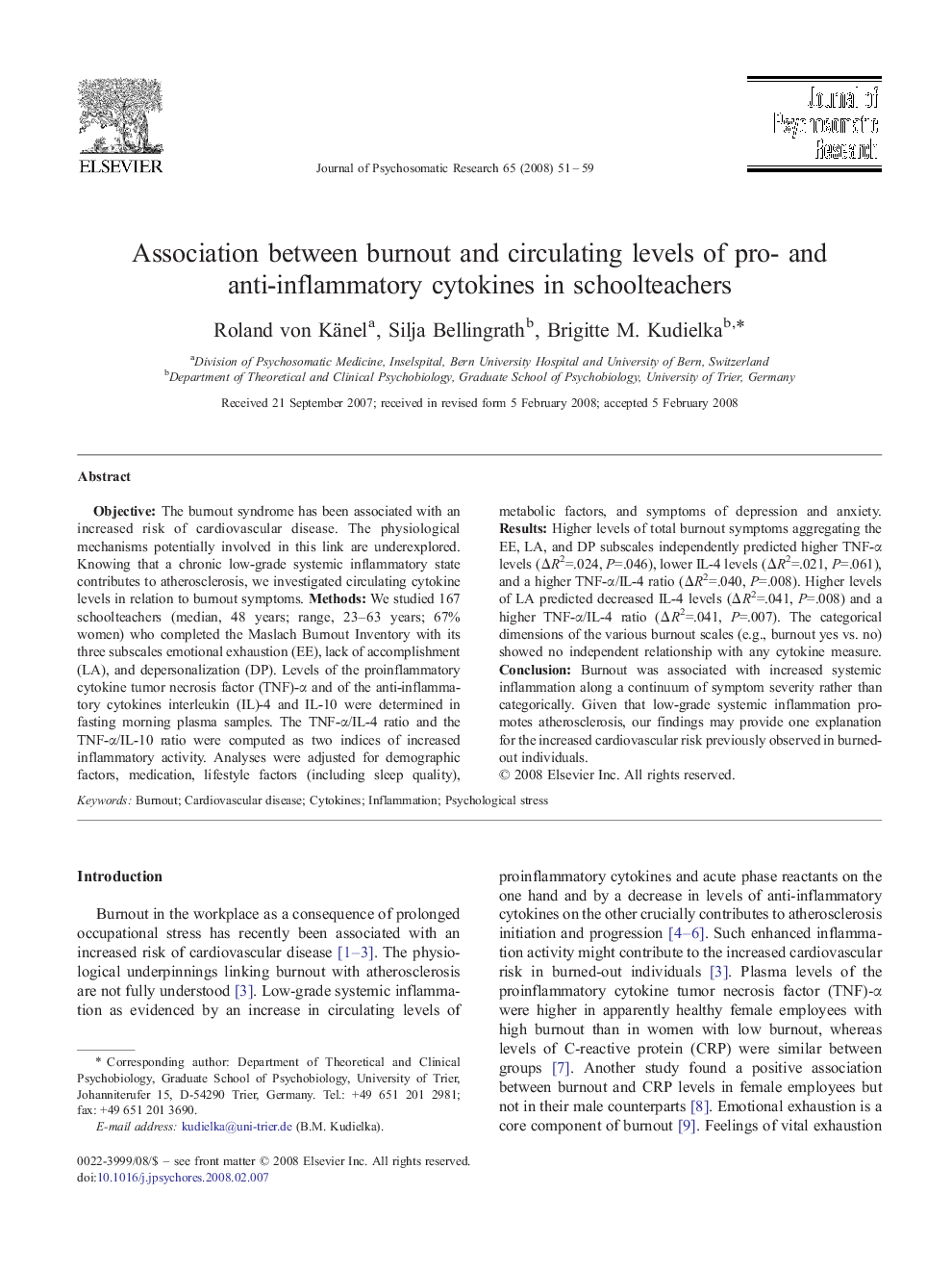| کد مقاله | کد نشریه | سال انتشار | مقاله انگلیسی | نسخه تمام متن |
|---|---|---|---|---|
| 950384 | 926821 | 2008 | 9 صفحه PDF | دانلود رایگان |

ObjectiveThe burnout syndrome has been associated with an increased risk of cardiovascular disease. The physiological mechanisms potentially involved in this link are underexplored. Knowing that a chronic low-grade systemic inflammatory state contributes to atherosclerosis, we investigated circulating cytokine levels in relation to burnout symptoms.MethodsWe studied 167 schoolteachers (median, 48 years; range, 23–63 years; 67% women) who completed the Maslach Burnout Inventory with its three subscales emotional exhaustion (EE), lack of accomplishment (LA), and depersonalization (DP). Levels of the proinflammatory cytokine tumor necrosis factor (TNF)-α and of the anti-inflammatory cytokines interleukin (IL)-4 and IL-10 were determined in fasting morning plasma samples. The TNF-α/IL-4 ratio and the TNF-α/IL-10 ratio were computed as two indices of increased inflammatory activity. Analyses were adjusted for demographic factors, medication, lifestyle factors (including sleep quality), metabolic factors, and symptoms of depression and anxiety.ResultsHigher levels of total burnout symptoms aggregating the EE, LA, and DP subscales independently predicted higher TNF-α levels (ΔR2=.024, P=.046), lower IL-4 levels (ΔR2=.021, P=.061), and a higher TNF-α/IL-4 ratio (ΔR2=.040, P=.008). Higher levels of LA predicted decreased IL-4 levels (ΔR2=.041, P=.008) and a higher TNF-α/IL-4 ratio (ΔR2=.041, P=.007). The categorical dimensions of the various burnout scales (e.g., burnout yes vs. no) showed no independent relationship with any cytokine measure.ConclusionBurnout was associated with increased systemic inflammation along a continuum of symptom severity rather than categorically. Given that low-grade systemic inflammation promotes atherosclerosis, our findings may provide one explanation for the increased cardiovascular risk previously observed in burned-out individuals.
Journal: Journal of Psychosomatic Research - Volume 65, Issue 1, July 2008, Pages 51–59